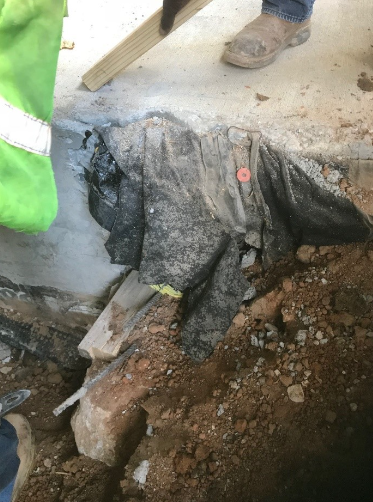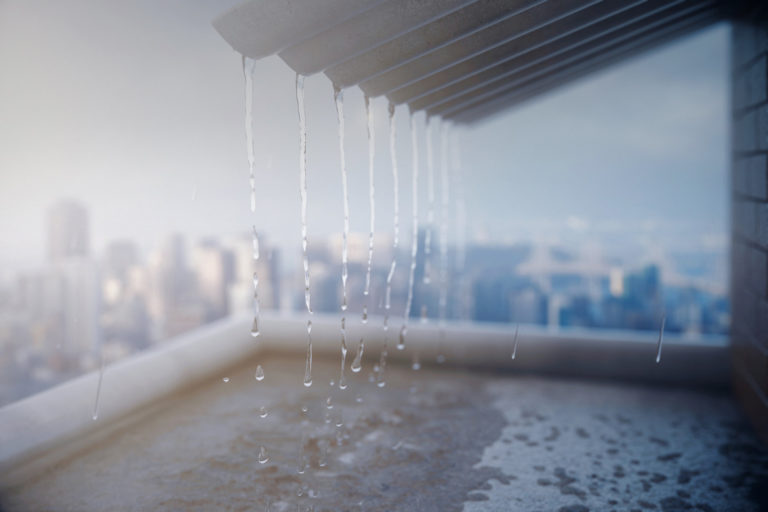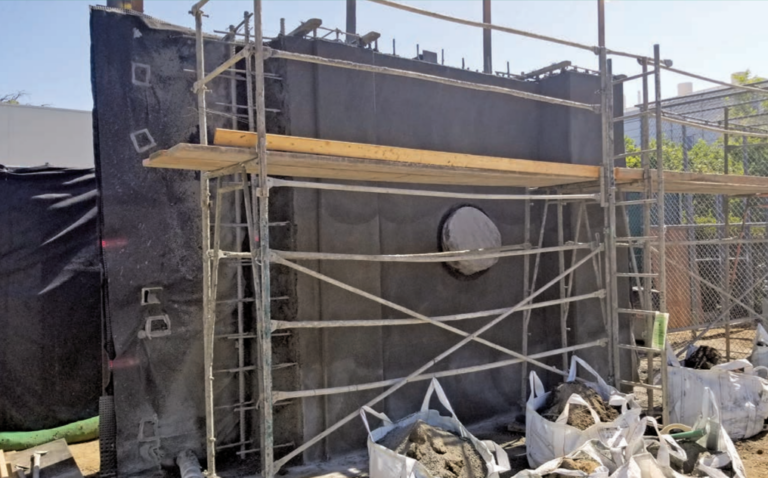At the end of January, we, at Polyguard, inaugurated a new training center with our first air barrier installation training event. The event was a fantastic success, and though I can’t take the credit, I suspect I get to keep my job for at least one more month. Reminiscing about that event reminded me that this year I am celebrating my 30th year in the building envelope industry. I’m not sure if I am more proud, or maybe just a bit horrified at this particular milestone, but nevertheless, I am remiss if I don’t take a moment to think back on what I have learned over these many years.
People who know me know that I like to share quotes from mentors who have made an impact on my life. Grampa Leslie said, “A short pencil is better than a long memory.” George the rigger said, “You didn’t pay me for my labor, you paid me for my knowledge.” Steve the manager said, “You can’t get the right answer unless you ask the right question.” All these phases have great stories attached to them and deep meaning to me, but the one that has the greatest impact on my professional career is this: “If it doesn’t get wet, it won’t leak.”
I know you’re probably thinking, “Seriously, ‘If it doesn’t get wet, it won’t leak’ is THE phrase that changed the course of your career? Who said it, Yogi Berra?” No, it is not a Yogism, but it is quite profound once it is understood. Keeping water out of a building is as much about managing the water as it is about stopping it. The amount of time and pressure that water can apply on a waterproofing element will dictate the level of integrity and durability required of that element. The hatch used on a leisure boat is different from the one used on a battleship, and both are different from one necessary on a submarine. Likewise, one could surmise that a screen-door won’t deter water on that same submarine, but it works perfectly fine in the rain under a front porch. Who could argue that? Yet, even with these many years in an industry chock full of seeming absolutes, I am often amazed at the lack of common sense.
I was called in on a high-profile project that was having leaks. After taking a cursory look at the issues I commented, “If it doesn’t get wet, it won’t leak.” You would have thought I just said the superintendent’s mother ran a brothel. The tirade that followed lasted 20 minutes and was filled with numerous, colorful expletives. While the room cringed from such ignorance on display, it became glaringly apparent to me why 80% of all litigation in new construction is started because of leaks within the building. You see, the area in question had a cladding specified to keep 95% of the surface water from entering the wall system, but he “swore” it was an issue with the internal Water-Resistant Barrier (WRB). Obviously, the cladding, which did not meet specification, was not doing its job because the leaks were much greater than mist from 5% of water could produce. Unfortunately, the resolution was quite intense and expensive. The cladding that could not be made to meet the specification, ultimately, had to be removed so that the WRB could be replaced with a system that was not just water resistant, but waterproof. If the cladding functions correctly and doesn’t let the WRB get wet, it won’t have leaked.
Another example of my little phrase and its universal suitability was this time handled by an associate, Joe. The building was a high-rise in a major metropolis with a six-story subterranean parking garage. The specifications called for the Polyguard pre-applied Underseal Underslab and Blindside waterproof systems, which is logical since the site was only a half mile from a river. However, that all changed once Value Engineering (VE) was performed. The general contractor recommended replacing the Underslab waterproofing with a cheaper vapor barrier because the project had subsoil drainage with a sump-pump. Joe strongly advised against the change knowing that pumps are unpredictable. His warning went unheeded and the first week the garage opened he received a phone call. “Joe, you need to get out here. Your waterproofing is leaking.” Joe’s reply, “What waterproofing? You choose to VE out the waterproofing. Get a bigger pump and hope it never goes out.” Like Joe, I find it hard to have any sympathy. Saving a hundred thousand dollars on a forty-million-dollar building by eliminating waterproofing makes no sense unless you really don’t understand managing water. The inverse of “If it doesn’t wet, it won’t leak.” is that when it gets wet, it will leak. So, if it is going to get wet, the system responsible for keeping the water out better be up to the task.
We construct buildings for one reason, to provide shelter by keeping the outside out…and that includes water. That same wise mentor also said to me, “Water is patient, and it will make a liar out of anyone.” Unfortunately, there are too many people responsible for the construction of buildings today who don’t know how to manage water, and they are revealed as liars every day.
Those two seemingly obvious phrases, while admittedly somewhat trite, are actually quite profound. And as you can see, my mentor knew what he was talking about. Thank you, Chuck, for all the time, knowledge, and wisdom you poured into me. I just pray that I am doing it justice by passing it on.






